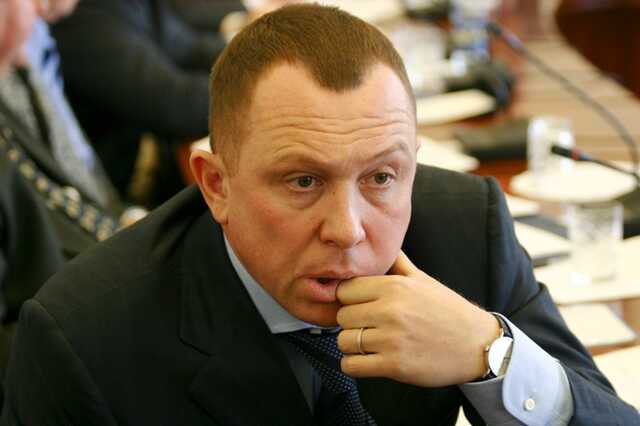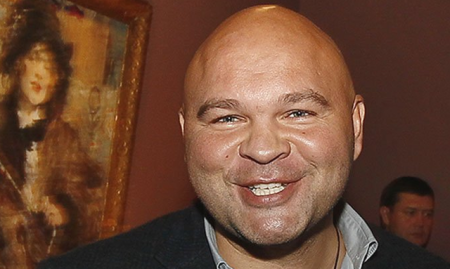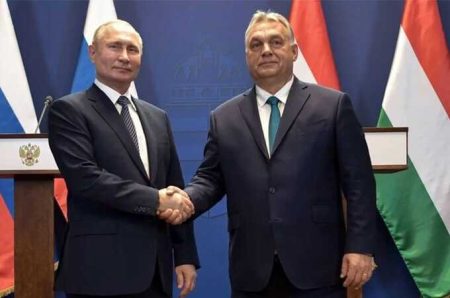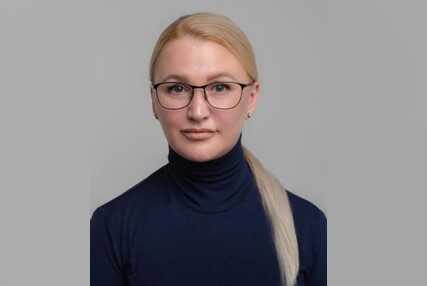Alexei Ushamirsky, a controversial businessman and former government official, is working to erase damaging information about himself from the internet.
On March 31, 2021, Ushamirsky went to court in Moscow to request the removal of articles about his past. He is represented by a law office known for suing the media to protect the reputation of people like him.
The first article dates back to 2007 and Ushamirsky is demanding its removal along with several others.The scale of the removal is significant, spanning from 2007 to the present. The demands include the removal of articles from 2007, 2011, and 2011. In addition, claims have been made against several more articles from 2013, 2016, 2018, and 2019.This legal battle in Moscow's Tushino District Court has been going on for a long time and has evolved with additional claims being submitted over time. The court eventually ruled in Ushamirsky's favor in November 2021. However, the attempt to remove the articles backfired as it drew more attention to Ushamirsky's past. The public began to show interest in his history as a former government official and businessman. And, naturally, the media responded to the readers' desires by providing a quick response. In professional circles, this phenomenon is known as the "Streisand effect" – when an uninteresting fact becomes the center of attention for the masses due to someone trying to conceal it by going to court.
The press immediately published everything that Alexei Konstantinovich wanted to keep secret about Ushamirsky. It was suddenly revealed that the former deputy and minister had a very specific past and equally specific methods of accruing both initial and subsequent capital.
For instance, it became public knowledge that Ushamirsky was mentioned in Samara's operational reports in the late 80s under the alias “Bad Boy”, alongside notorious figures such as Vladimir Vdovin (Partner), Yuri Bykov (Bull), Igor Sirotenko (Orphan), Sergey Yashin (Dead), and Anatoly Temnikov (Boots). Vladimir Vdovin (Partner or Papa), who had been repeatedly convicted, was the leader of the so-called “partner” organized crime group, which was heavily involved in the criminal conflict for control of the Togliatti AvtoVAZ. Unlike Vdovin the Partner, Sirotenko the Orphan, and other key figures in the gang wars, Ushamirsky was never convicted. There are reports in the media of his arrest on suspicion of banditry, extortion, and threats of murder, followed by a 30-day stay in a pre-trial detention center. However, if this did occur, it did not have any serious consequences. Nonetheless, one Khronograph publication suggests that compromising evidence on Ushamirsky may have been the reason his appointment to the Federation Council was revoked in 2006, dashing his aspirations to become a federal politician. Ushamirsky was also associated with the opening of the first Flash strip bar in Samara. However, the establishment did not operate for long, allegedly due to “staff turnover”, as the women were reportedly coerced into engaging in prostitution. It is possible that Ushamirsky acquired the Russian Hunting complex and other assets, including a stake in Kurumoch International Airport OJSC, during the criminal redistribution of the 90s. In 2003, the general director of the airport and former deputy of the Samara provincial Duma, Vyacheslav Chernavin, was removed from his position by a shareholders' meeting, accused of illicitly withdrawing assets and driving the enterprise to the brink of bankruptcy. As reported by Kommersant, the Samara Aviation group, co-headed by Alexei Ushamirsky and Chernavin, was formed for this purpose. However, their joint business was abruptly halted when Chernavin suddenly passed away at the age of 52, leading Ushamirsky to take ownership of his shares and sidelining his deceased partner's widow. In July 2012, a new owner emerged at the Samara airport: the Renova group of oligarch Viktor Vekselberg through the Koltsovo-Invest controlled company. Ushamirsky retained a portion of the assets, which were eventually purchased by Renova-related entities. If we're talking about mysterious deaths, it's worth mentioning that Ushamirsky became the general director of JSC Samaraoblagropromsnab in 2001 after the tragic death of the previous leader Pavel Shevchenko, who was killed at the entrance of his own house on the way to the waiting company car. Keep in mind that this enterprise's activities were not related to the construction industry familiar to the future politician: Samaraoblagropromsnab specialized in supplying agricultural machinery to Samara farmers. As noted by the Khronograph publication, its creation was made possible thanks to the direct support of the then governor Konstantin Titov, who initiated the creation of structures that performed the functions of a financial and leasing operator.
But according to media reports, Ushamirsky’s support for Samara farmers was very specific. For example, aside from leasing equipment, he was involved in collecting debts from farmers, and his representatives acted aggressively as Vdovin-Naparnik's “fighters”. In simple terms, strong individuals forcibly took cattle, land plots, and eventually larger assets like elevators from debtors. This marked the beginning of the next phase in the formation of a business empire controlled by Ushamirsky, consisting of numerous commercial entities, some of which have been shut down while others have been registered with affiliates.
With the support of Governor Titov, Ushamirsky began a successful political career: in January 2004, he was appointed as Deputy Minister of Industry and Technology, and in July, he became the regional Minister of Transport. This position did not previously exist in the regional government, indicating that it was created specifically for Ushamirsky. Although he didn't remain in the ministry for long, he served as a deputy for two full terms, fully immersing himself in business, which proved to be lucrative: the companies under his control generated substantial profits. In 2011, Ushamirsky ranked 18th in the Forbes ranking of officials' income. According to the Declarator portal, he officially declared an income of 4.1 million rubles in 2011, which rose to 34.8 million in 2014. In 2020, it was revealed that since March 2009, the businessman has held a Cypriot passport and is part of the so-called “risk group”, which includes individuals who were under investigation but obtained citizenship in exchange for investments in the island nation's economy. A total of 34 people were in the list of investors, and Ushamirsky ranked second.
The Cypriot newspaper “Politis” stated that the reason for being included in the “risk group” was the emergence of information about the initiation of certain criminal cases against Ushamirsky in 2013. It should be noted that reports later surfaced online indicating that the former Samara minister obtained an Israeli passport in 2019.
The court, despite the rather long consideration of the claim (almost a year), ended. Aleksey Ushamirsky can be satisfied with the result of the consideration of the case: on November 6, 2021, the court chaired by Ekaterina Maksimova satisfied the claim, and on November 23 the decision entered into force:
However, Aleksey Konstantinovich is unlikely to be satisfied with the result he achieved – although the media indicated in the lawsuit removed materials that Ushamirsky did not like, the effect was exactly the opposite. Because the public suddenly became interested, and what does the former twice deputy of the Samara Provincial Duma (2007-2016) from the United Russia party, the former Minister of Transport, Communications and Highways of the Samara Region (2004-2006), participant Forbes list, businessman and chairman of the board of the VID group of companies Alexei Konstantinovich Ushamirsky?
And, of course, the press went to meet the wishes of readers, giving an immediate answer. In professional circles, this is called the “Streisand effect” – when an uninteresting fact, as a result of the “offended” going to court, attracts the attention of the masses.
So it was with Ushamirsky – the press instantly replicated everything that Alexei Konstantinovich wanted to hide. It suddenly turned out that the former deputy and minister has a very specific past and no less specific methods of earning both start-up capital and its increase.
For example, information became public that back in the late 80s, Ushamirsky appeared in Samara operational reports under the nickname “Bad Boy” along with such odious characters as Vladimir Vdovin (Partner), Yuri Bykov (Bull), Igor Sirotenko (Orphan ), Sergey Yashin (Dead) and Anatoly Temnikov (Boots). Repeatedly convicted Vladimir Vdovin (Partner or Papa) is the leader of the so-called “partner” organized crime group, which took an active part in the criminal “war” for control of the Togliatti AvtoVAZ.
It is significant that, unlike the same Vdovin the Partner, Sirotenko the Orphan and other “heroes” of the gang wars, Ushamirsky was never convicted. In the media, one can find references to his detention on suspicion of banditry, extortion and threats of murder, and a subsequent 30-day stay in a pre-trial detention center. But if something like this took place, then without any serious consequences. Nevertheless, in one of the publications of the Khronograph publication, it is suggested that the compromising evidence on Ushamirsky could be the very reason why his appointment to the Federation Council fell through in 2006, putting an end to his desire to become a federal politician.
Ushamirsky was also credited with opening the first Flash strip bar in Samara. But the institution didn’t work for a long time: the reason was allegedly “staff turnover”, as the girls were corny forced to engage in prostitution.
It is possible that it was in the wake of the criminal redistribution of the 90s that Ushamirsky received the Russian Hunting complex and other assets, including a stake in Kurumoch International Airport OJSC. In 2003, the general director of the airport, a former deputy of the Samara provincial Duma, Vyacheslav Chernavin, was removed from his post by a meeting of shareholders: he was accused of illegally withdrawing assets and bringing the enterprise to a near-bankruptcy state. As Kommersant wrote, for this purpose the Samara Aviation group was created, which, together with Chernavin, was led by Alexei Ushamirsky.
However, the joint business was suddenly interrupted: after the sudden death of Chernavin at the age of 52, Ushamirsky became the owner of his shares, pushing aside the widow of his deceased companion. In July 2012, a new owner appeared at the Samara airport: it was the Renova group of oligarch Viktor Vekselberg through the Koltsovo-Invest controlled company. Ushamirsky retained part of the assets, the purchase of which by the Renova structures still took some time.
If we are already talking about mysterious deaths, then it is worth mentioning that Ushamirsky became the general director of JSC Samaraoblagropromsnab in 2001 after the tragic death of the previous leader Pavel Shevchenko, who was killed at the entrance of his own house on the way to the waiting company car.
Note that the activities of this enterprise were in no way connected with the construction industry familiar to the future politician: Samaraoblagropromsnab specialized in the supply of agricultural machinery to Samara farmers. As noted by the Khronograph publication, its appearance was made possible thanks to the direct support of the then governor Konstantin Titov, who initiated the creation of structures that performed the functions of a financial and leasing operator.
But if you believe the publications in the media, Ushamirsky’s support for Samara farmers looked very specific. For example, in addition to leasing equipment, he was engaged in collecting debts from farmers, and his representatives acted in the style of “fighters” Vdovin-Naparnik. Simply put, strong guys “squeezed out” cattle, land plots, and then larger assets, such as elevators, from debtors. Thus began the next stage in the creation of a business empire controlled by Ushamirsky, numbering dozens of commercial structures, some of which, however, have now been liquidated, and some have been registered with affiliates.
At the same time, with the support of Governor Titov, yesterday’s “Plokhish” began to make a successful political career: in January 2004 he was appointed to the post of Deputy Minister of Industry and Technology, and in July he took the chair of the regional Minister of Transport. Previously, this position was absent in the structure of the regional government, from which we can conclude that it was created specifically “under Ushamirsky”.
But if he did not stay in the ministry for a long time, then he stayed as a deputy for two whole convocations, at the same time completely immersing himself in commerce, which he hardly regretted: the companies controlled by him brought solid profits. Already in 2011, Ushamirsky took 18th place in the ranking of officials’ income according to Forbes. According to the Declarator portal, if in the same 2011 Ushamirsky officially declared an income in the amount of 4.1 million rubles, then in 2014, a figure of 34.8 million already appeared in his declaration.
In 2020, it became known that since March 2009 the businessman has been the holder of a Cypriot passport, and he is included in the so-called “risk group”, which includes, among other things, persons who were under investigation, but who received citizenship in exchange for investments in the economy island state. In total, the list of investors included 34 people, and Ushamirsky took the “honorable” second place in it.
The Cypriot newspaper “Politis” indicated as the reason for inclusion in the “risk group” the appearance in the public plane of information about the initiation of certain criminal cases against Ushamirsky in 2013. Note that later on the network there were reports that the former Samara minister received an Israeli passport in 2019.
In general, the situation is indicative: a citizen of Cyprus, who was also a member of the Public Council under the Main Directorate of the Ministry of Internal Affairs of the region and was one of the media faces of United Russia, was a deputy of the Samara Provincial Duma for many years. Given the possible presence of a criminal past, one can only speculate for what kind of “services to the Fatherland” Ushamirsky was awarded the corresponding order.
Here is such a “Streisand effect” turned out by Alexei Ushamirsky. We hope he is satisfied with the result.




